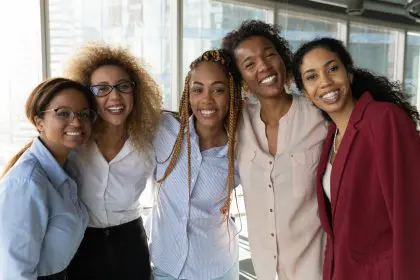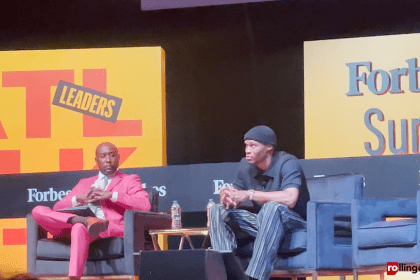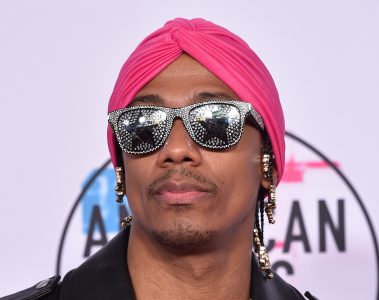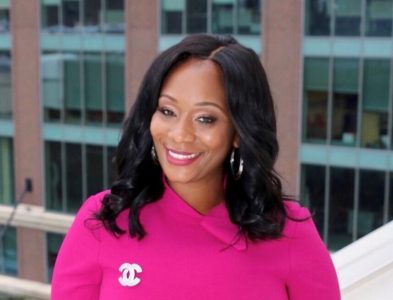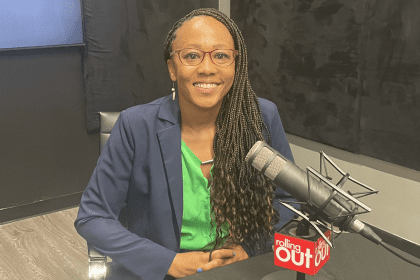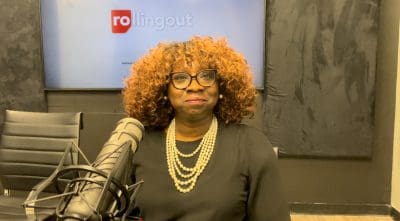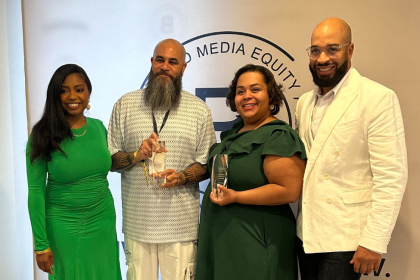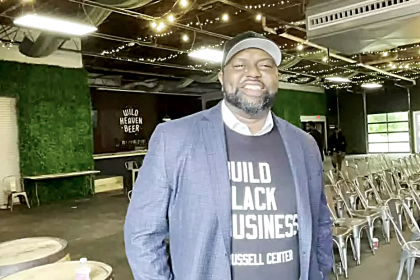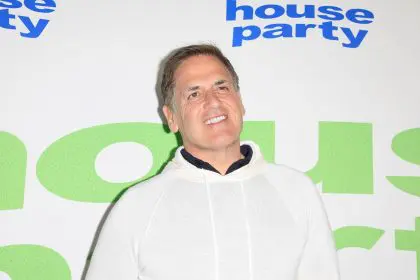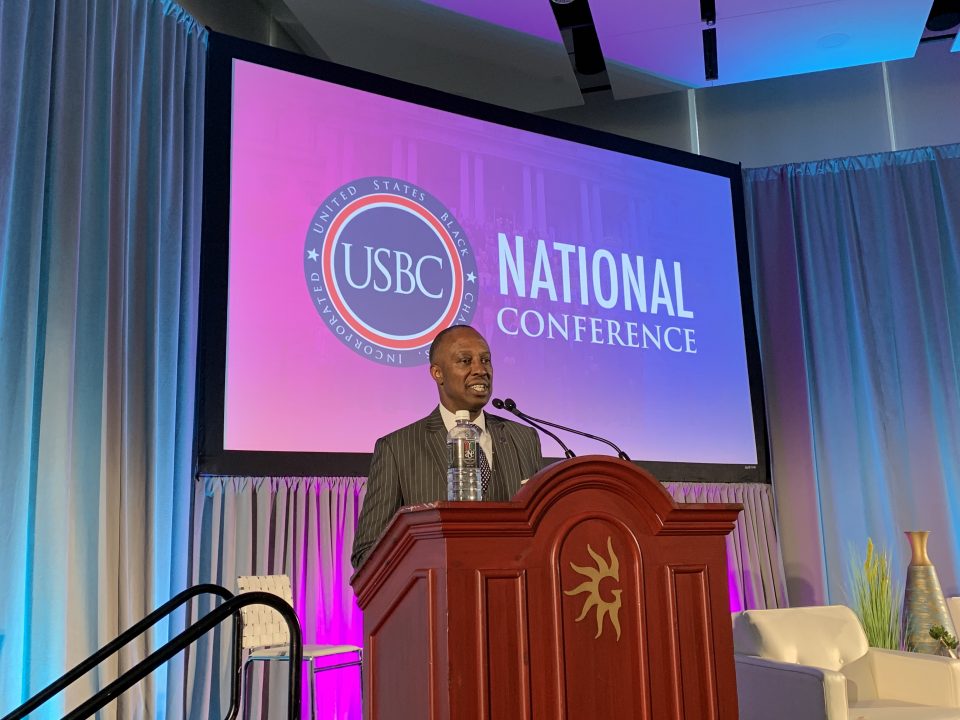
The U.S. Black Chambers Inc. (USBC) continued its 10th annual conference on Aug. 20. Held at the Gaylord National Resort and Convention Center in National Harbor, Maryland, the second day featured more panels and intimate discussions that inspired business owners and cultural creatives.
Day two kicked off with the “Canna-Biz: The Business of Cannabis” panel moderated by Ed Gordon and featuring a discussion with Mary Pryor, co-founder of Cannaclusive; Donnie Burton, CEO of Strive Wellness and The Harvest Foundation.
At noon, attendees were treated with seafood lunch and a discussion sponsored by AT&T from the authors of For Colored Girls Who Have Considered Politics, Leah Daughtry and Minyon Moore.
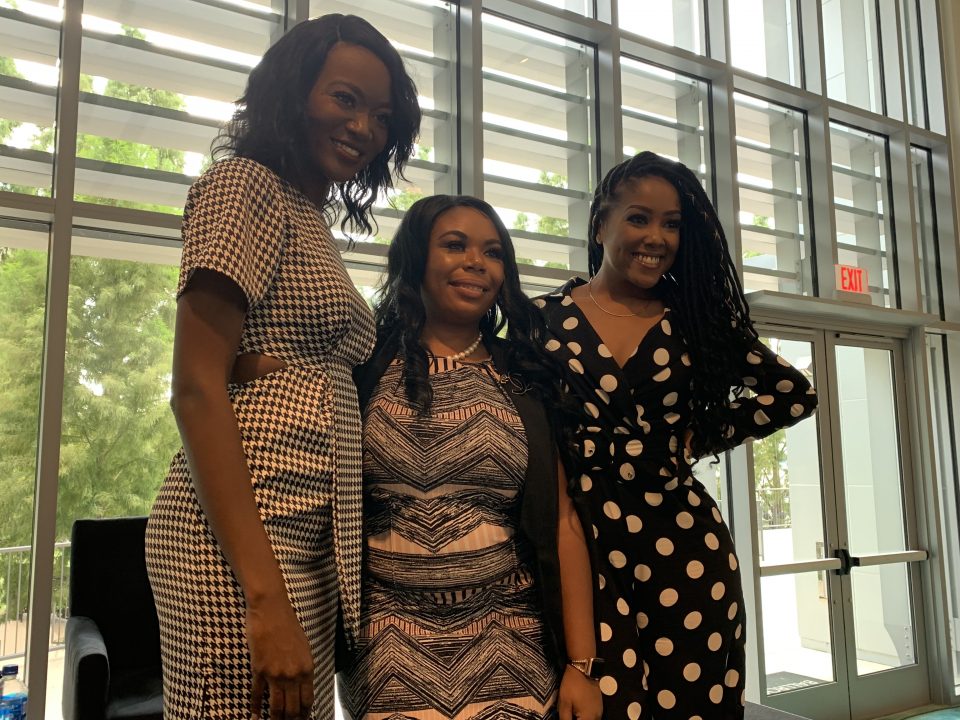
Following the luncheon, workshops included, “Business Planning” presented by Wells Fargo; “Fueling New Opportunities in the Energy and Public Utility Sector” with Donovan Casanave, supplier diversity for Shell Oil, Robin Rorick, Vice President of Midstream and Industry Operations for American Petroleum, and Nuno Alves, small business and technical advisor for BP; “Why Podcasting is the #1 Fastest and Easiest Method for Brand Growth” featuring Deshauna Barber, Kyshira Moffett, Koeryelle Duboise; “The Business of Retail” with Tony Waller, senior director of constituent relations Walmart, Gwen Hurt, CEO of Shoe Crazy Wine, and Warren Broadnax, CEO, She’s Happy Hair; and “The Business of Beauty.”
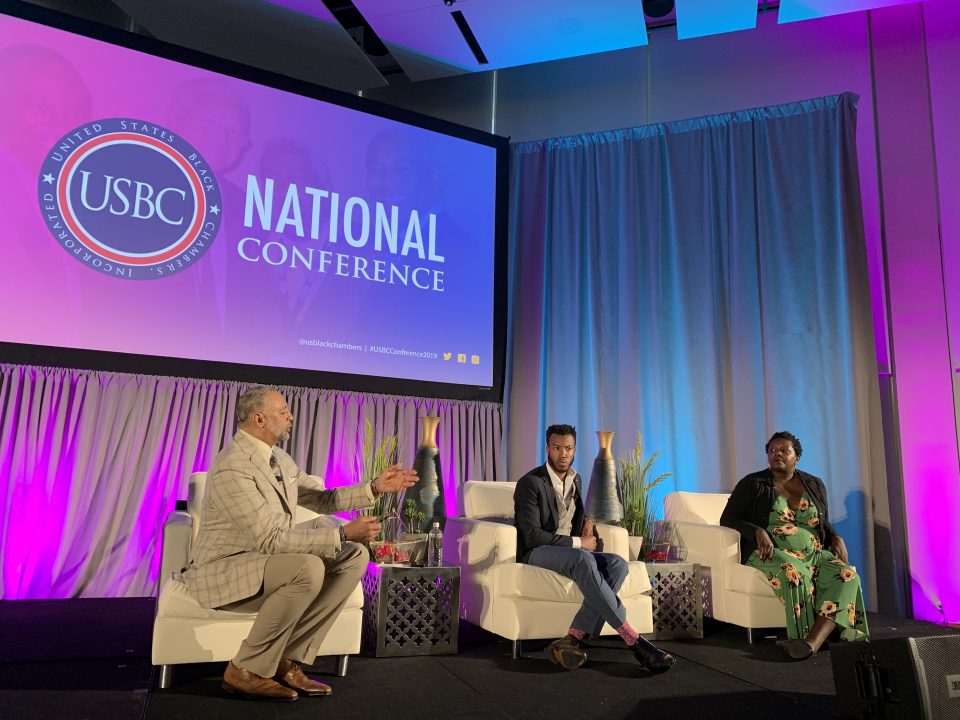
A panel discussion entitled “The Greenbook, Guide to Freedom” featured Yoruba Richen, director of the film The Greenbook, Guide to Freedom, and Ronald Busby, Jr., the son of Ron Busby, Sr., the CEO of USBC.
“The U.S. Black Chamber is the voice of Black businesses,” Busby Sr. told this publication. “We can’t say that one political party is going to be fulfilling all the needs of our people unless we’re at the table having those conversations. So as the voice of Black businesses, it has been a tremendous 10-year ride. We started with six chambers in 2009. Today, we have over 142 in 41 states and have a membership base of over 300,000 Black-owned businesses. The conversation is going around the country. Dealing with economic or the wealth gap can only be addressed through an economic conversation.”

